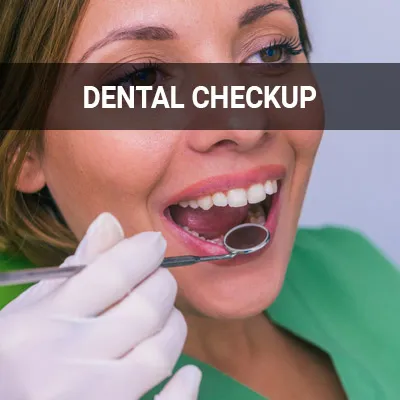Dental Health During Pregnancy Des Plaines, IL
Maintaining dental health during pregnancy is a crucial part of proper prenatal care for women. Many changes happen to the body during pregnancy, including ones that can affect dental health. Fortunately, receiving the necessary care for teeth, gums, and mouth can help patients have a safe and healthy pregnancy.
Do not hesitate to take care of your oral health during pregnancy. Our team at Apple Family Dental provides prenatal dental care in Des Plaines and the surrounding area to help patients maintain their dental health during pregnancy. Call us today at (847) 553-4848 to learn more about our services or schedule an appointment.
Dental Health Conditions That Can Form During Pregnancy
During pregnancy, changes in the body can affect the teeth and gums. They can occur for various reasons, such as increased hormone levels, different eating habits, and less adherence to proper oral hygiene routines. These changes can cause some dental health conditions during pregnancy, such as:
- Gum Disease. Pregnancy gingivitis can develop into gum disease without proper treatment.
- Loose Teeth. During pregnancy, increased levels of progesterone and estrogen can temporarily loosen the bones and tissues that hold teeth in position.
- Pregnancy Gingivitis. Raised levels of estrogen and progesterone during pregnancy increase the risk of gingivitis.
- Pregnancy Tumors. These lumps develop on the gums due to excessive amounts of plaque but are non-cancerous.
- Tooth Decay. Morning sickness or a diet that includes more sugars and carbohydrates increases the risk of pregnant women developing cavities.
- Tooth Erosion. Stomach acid from vomiting during morning sickness can wear down the tooth enamel.
“Raised levels of estrogen and progesterone during pregnancy increase the risk of gingivitis.”
Why Total Health Dentistry During Pregnancy
Expectant mothers should keep a close eye on their dental health, as pregnancy increases the risk of complications with the gums or teeth. If these complications lead to periodontitis, there will be a higher chance of the baby being born prematurely or at a low birth weight. Periodontitis is also associated with various systemic health problems, which could further endanger both the mother and the unborn child.
Conversely, pregnant women with preexisting conditions may be more susceptible to dental issues. This can lead to a never-ending cycle of health problems, making it extra crucial for expectant mothers to see a total health dentist. While most traditional dentists treat isolated conditions, complete health dentists treat the patient's health in its entirety. In other words, they account for any risk factors that may affect a person's ideal treatment plan.
“Expectant mothers should keep a close eye on their dental health, as pregnancy increases the risk of complications with the gums or teeth.”
Taking Care of Dental Health During Pregnancy
Expectant mothers are prone to neglecting their dental health due to high levels of fatigue and frequent snacking. Additionally, morning sickness may wear away at the tooth enamel, while hormonal changes may lead to pregnancy gingivitis. Unfortunately, however, a pregnant woman's oral health can directly affect her unborn baby's health.
Excess bacteria growth in the mouth can enter the bloodstream through the gums and make its way to the uterus, which may induce premature labor. Furthermore, once the baby arrives, the mother may potentially pass on the bacteria to the newborn through vertical transmission. As such, it is critical that pregnant women brush at least twice a day with a fluoridated toothpaste, floss nightly, and eat a well-balanced diet. Keeping regular appointments with the dentist is also crucial.
“…once the baby arrives, the mother may potentially pass on the bacteria to the newborn through vertical transmission.”
Check out what others are saying about our dental services on Yelp: Dental Health During Pregnancy in Des Plaines, IL
Other Aspects of Pregnancy To Discuss With a Dentist
Dentists can also help patients regarding other areas of health during pregnancy, including nutrition, heart health, and pain. Our team can provide patients with nutritional guidance to maintain a healthy diet throughout their pregnancy. What women eat during their pregnancy can affect their oral health and their baby's development. For this reason, it is important to limit sugary foods and beverages and eat a nutrient-rich diet with calcium, phosphorus, protein, and vitamins A, C, and D.
Dentists understand the connection between oral and overall health. We can educate patients on how increased plaque during pregnancy can adversely affect heart health. Plaque can lead to pregnancy gingivitis and gum disease, which have a connection to heart disease. Increased hormone levels during pregnancy can also lead to sore teeth and gums. Our team can provide patients with tips and advice to help manage sensitive teeth during pregnancy.
“…it is important to limit sugary foods and beverages and eat a nutrient-rich diet with calcium, phosphorus, protein, and vitamins A, C, and D.”
Questions Answered on This Page
Q. Why should I see a total health dentist during pregnancy?
Q. How should I take care of my dental health during pregnancy?
Q. What are some dental health conditions that can form during pregnancy?
Q. What other aspects of health can pregnant women discuss with a dentist?
People Also Ask
Q. Why is the oral microbiome important to systemic health?
Q. What are the health risks of gum disease?
Q. What lifestyle choices help promote good oral health?
FAQs
Q. Can I receive local anesthetics for dental treatment while pregnant?
A. Yes. According to the American Dental Association, local anesthetics are safe for pregnant mothers. Consequently, pregnant patients do not have to worry about the safety of receiving numbing medication during dental treatment.
Q. What happens if I get a pregnancy tumor?
A. A pregnancy tumor appears red and raw-looking. These lumps can bleed easily but will typically disappear after pregnancy. If the lumps remain after the patient's baby is born, our team can help remove them.
Q. Is it safe to receive an X-ray during pregnancy?
A. Yes. It is safe for pregnant patients to have an X-ray during pregnancy. While the radiation from dental X-rays is extremely low, our team will take all the necessary precautions to keep patients safe. We will cover them with a leaded apron to shield the abdomen and a leaded collar to protect the thyroid.
Q. How does smoking affect dental health during pregnancy?
A. Pregnant women should not smoke while pregnant. Smoking adversely affects oral health, especially gums. The numerous acids and chemicals in cigarettes directly affect the mother's oral and overall health and the baby's.
Q. What are the symptoms of pregnancy gingivitis?
A. Pregnancy gingivitis typically occurs during the second and eighth months of pregnancy. The symptoms of this condition will range depending on its severity. Early symptoms may appear as red and inflamed gums, while more advanced stages can result in severe swelling and bleeding.
Dental Terminology
Call Us Today
Proper dental care is essential for both expectant mothers and unborn babies during pregnancy. We at Apple Family Dental may be able to help. Call us today at 847-553-4848 to schedule an appointment or to learn more about our services.
Helpful Related Links
- American Dental Association (ADA). Glossary of Dental Clinical Terms. 2024
About our business and website security
- Apple Family Dental was established in 1994.
- We accept the following payment methods: American Express, Cash, Check, Discover, MasterCard, and Visa
- We serve patients from the following counties: Cook County and Lake County
- We serve patients from the following cities: Des Plaines, Niles, Glenview, Morton Grove, Park Ridge, Mount Prospect, Northbrook, Wheeling, Skokie, Arlington Heights, Buffalo Grove, Schaumburg, and Prospect Heights
- National Provider Identifier Database (1558090167). View NPI Registry Information
- Norton Safe Web. View Details
- Trend Micro Site Safety Center. View Details
Back to top of Dental Health During Pregnancy










